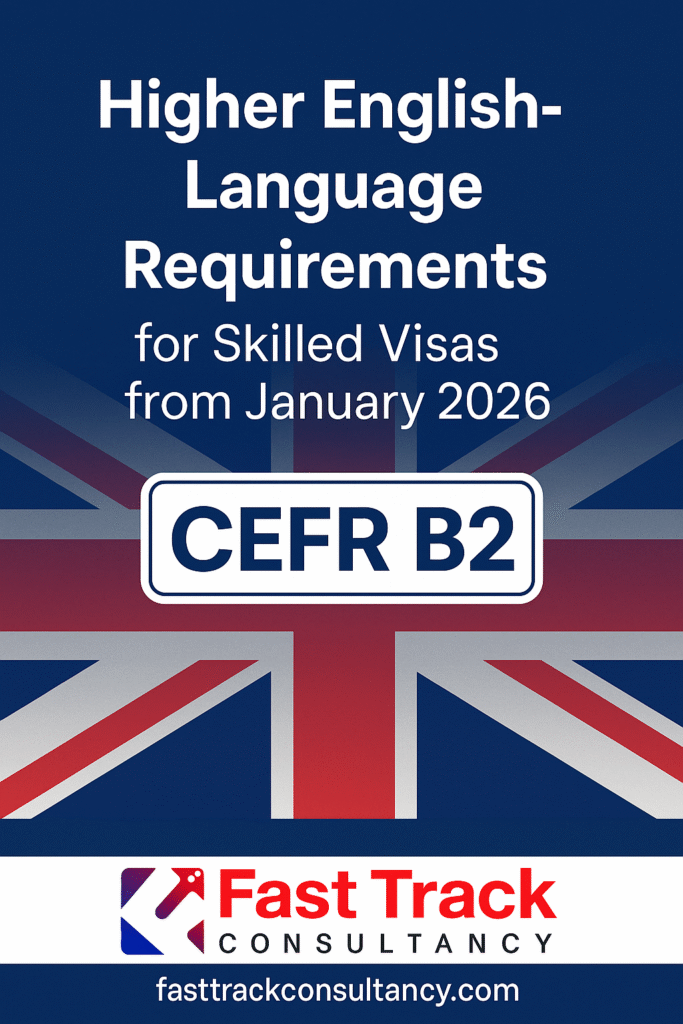The Home Office has confirmed a significant policy shift that every skilled worker, self-sponsor, and UK employer must now take seriously. From 8 January 2026, most major UK work and business-based immigration routes will require applicants to meet a higher English-language standard — CEFR B2, up from the previous B1.
This change applies to the Skilled Worker, Scale-Up, and High Potential Individual (HPI) visa routes — three of the most common pathways for professionals and entrepreneurs moving to the UK.
🔹 What’s Changing
The CEFR B2 level represents an upper-intermediate standard of English, roughly equivalent to A-Level or IELTS 6.0–6.5.
Applicants will need to demonstrate greater fluency and accuracy in reading, writing, listening, and speaking.
This change is part of the Home Office’s wider immigration overhaul aimed at ensuring “migrants can contribute effectively to the UK’s workforce and integrate successfully into society.”
In simpler terms — the UK wants to raise the linguistic bar for anyone entering through economic migration routes.
🔹 Who Is Affected
- Skilled Worker visa applicants — If you’re planning to apply or renew your visa from January 2026 onward, your English test must meet the new CEFR B2 level.
- Self-Sponsorship applicants — Entrepreneurs planning to form their own company and sponsor themselves under the Skilled Worker route must also meet this higher threshold.
- Employers and sponsors — Businesses will need to verify that candidates meet B2 before assigning Certificates of Sponsorship (CoS).
- Graduates on the HPI or Scale-Up visa — Future renewals or switches into other categories may also trigger the B2 requirement.
🔹 What You Should Do Now
At Fast Track Consultancy, we recommend taking these immediate steps:
- Check your English level early. If you’re at B1, begin preparing for B2 now — consider IELTS Academic or UKVI SELTS.
- Don’t wait until 2026. Secure your visa or sponsorship under the current rules if possible — early applications remain under B1 requirements.
- For businesses: Audit your current and upcoming international hires. If they’ll need sponsorship in 2026, verify their English proficiency today.
- For self-sponsors: Include English-language testing as part of your business plan and HR compliance framework; it’s no longer optional.
🔹 Why It Matters
Failure to meet this new standard could lead to refusals, wasted time, and extra costs. The new rules also make language competence a central compliance issue for sponsor licence holders — especially those managing overseas recruitment pipelines.
This shift underlines why proactive planning and expert legal guidance matter more than ever.
📞 Ready to Stay Ahead?
At Fast Track Consultancy, we specialise in guiding skilled professionals and business owners through every step of the immigration journey — from company setup and sponsor-licence acquisition to Skilled Worker and ILR strategies.
Book your consultation now via fasttrackconsultancy.com or through our Linktree, and let’s make sure you’re fully prepared for the January 2026 rule change — before it catches others off guard.

